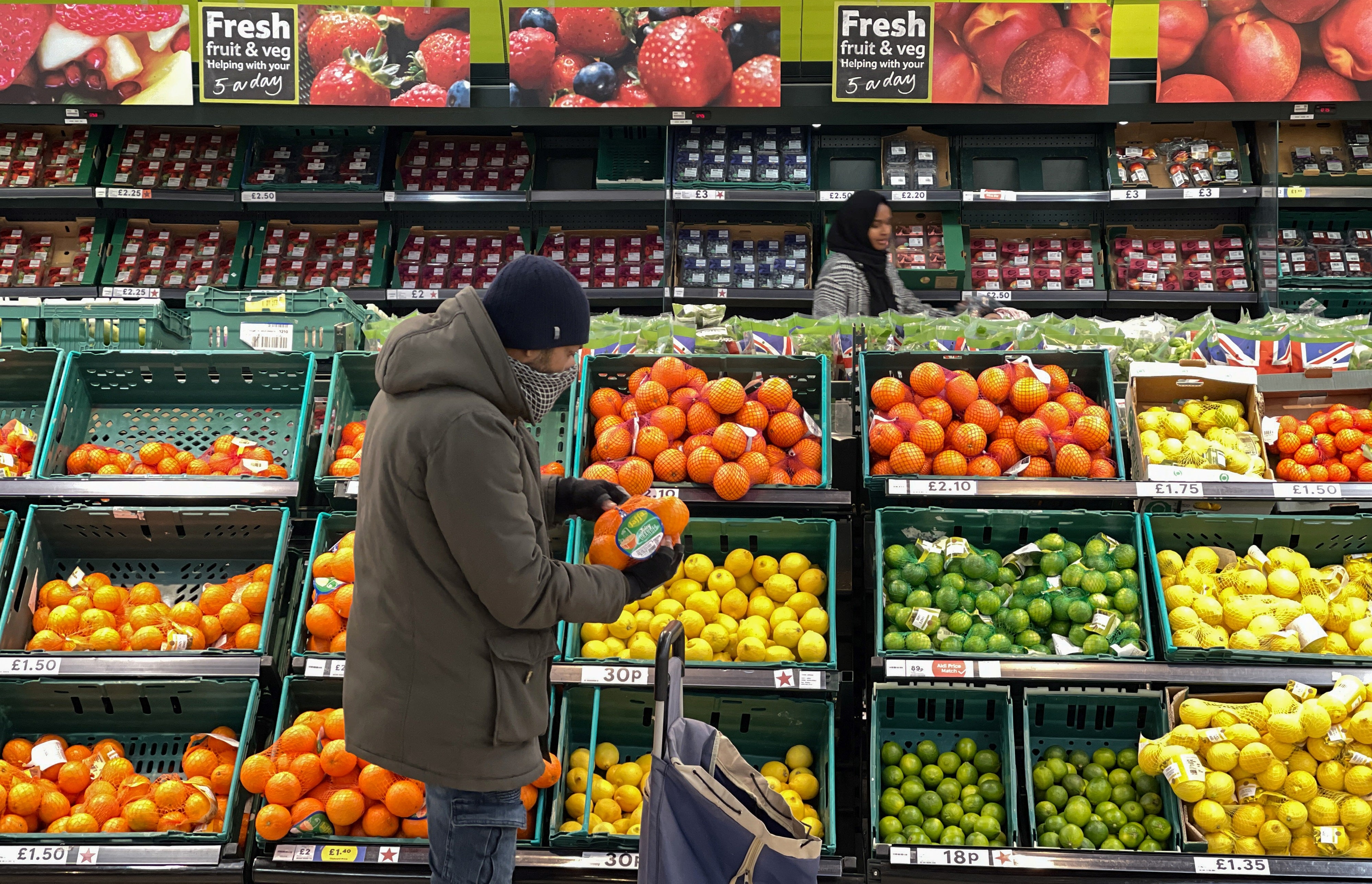Households face further food price surge as ‘dire’ drought conditions hit UK farmers
Wheat, corn, meat and potato prices expected to rise, writes Ben Chapman


Households face another surge in the price of staple foods such as bread, potatoes and meat as farmers up and down the country warn crops are being hit by soaring temperatures and drought conditions.
Shoppers have already seen huge rises in food prices and another increase in supermarket prices would likely hit just as energy bills are set to double in October.
As the government prepared to issue an official declaration of drought on Friday, the National Farmers' Union said it had "never seen a situation like it", with members reporting unprecedented dry conditions, poorer quality produce and declining yields.
Potato farmers are among the worst hit, reporting yields down by as much as 40 per cent in some areas during the crucial growing month of August.
Wheat crops have also plunged across Europe amid sweltering temperatures, adding to the major disruption of supplies caused by the war in Ukraine.
Alice Witchalls, a market analyst at commodity data firm Mintec Global, said UK potato growers had reported smaller produce and lower quality.
“August is the critical development period and potatoes need a lot of water,” said Ms Witchalls.
“There is massive variability in what producers are reporting. In areas where the crop isn’t irrigated and there has been no rain, it has completely dried out. That will impact prices the most.”
Prices in 2021 were already up 37.5 per cent on the previous year and producers expect another jump when the outcome of this year’s crop is known in a few weeks.
Analysts warned that prices for grains were expected to continue to rise and a severe lack of water would mean lower quality wheat with less protein content.
Wheat prices had begun to ease back after spiking to record-highs following Russia’s invasion of Ukraine but have risen 10 per cent since early July as fears about droughts across Europe have grown.
Zanna Aleksahhina, a specialist in grain markets at Mintec, said markets were indicating further price increases could be in store.
“The weather is definitely something we are looking at. Right now the winter wheat harvest is about average but the quality may be lower,” Ms Aleksahhina said.
“The UK imports 60 per cent of its corn and the hot weather has impacted that all across Europe. Everyone is trying to buy corn so importers like the UK may have to pay higher prices.”
Higher grain prices will also put further pressure on prices of beef, chicken and lamb, because corn and wheat are used for animal feed.
“It’s been dire,” said Karl Franklin, a sheep farmer in Oxfordshire.
“That is not an exaggeration. We are feeding the lambs on standing hay which is grass that’s dried out.
“It’s got next to no nutritious value at all. I’m giving them supplements to keep them healthy.
“There is no grass at all at the moment. I am going to do a rain dance in a few days if things don’t change.”
Sheep farmers such as Mr Dixon fear that lack of grass going into breeding season means there will significantly be fewer lambs next year, lowering supplies of meat.
“We’ve got eight weeks to grow enough grass to sustain the animals for the winter. The timescale is getting narrower and narrower. My lambs will be losing condition if they don’t get enough grass. They won’t fatten.”
NFU deputy president Tom Bradshaw said the weather was “hugely challenging” for many farms across the country and causing concern for all farming sectors.
“It highlights the urgent need for government and its agencies to better plan for and manage the nation’s water resources. This will help build resilience into the farming sector and provide investment opportunities for irrigation equipment and to build more on-farm reservoirs.
Mr Bradshaw warned that crops such as sugar beet and maize are showing “signs of stress”, while there are challenges for farmers needing to irrigate field vegetables and potatoes.
The Environment Agency has launched measures to help farmers trade water with other farmers, but many would like to see further support through what is forecast to be several more weeks of dry weather.
Mr Bradshaw added: “The dry weather has also severely hampered grass growth which could hit feed supplies for the winter, adding additional costs to livestock farming businesses at a time when costs are continuing to increase significantly.”
Any further increase in food prices would heap more misery on households that are struggling to keep up with the rising cost of living.
Food prices rose 9.8 per cent in the year to July as producers passed on the costs of higher energy prices and disruption to supplies. Experts have forecast that figure could spike to as much as 20 per cent, pushing up the cost of a weekly shop to unaffordable levels for many families on lower incomes.
Meanwhile, average energy bills could hit £4,467 in January and surpass £5,000 by April, according to analysts at Auxilione, an energy consultancy.
The Bank of England expects the overall rate of consumer price inflation to hit 13.3 per cent in the last three months of this year, the highest level since 1980.





Join our commenting forum
Join thought-provoking conversations, follow other Independent readers and see their replies
Comments